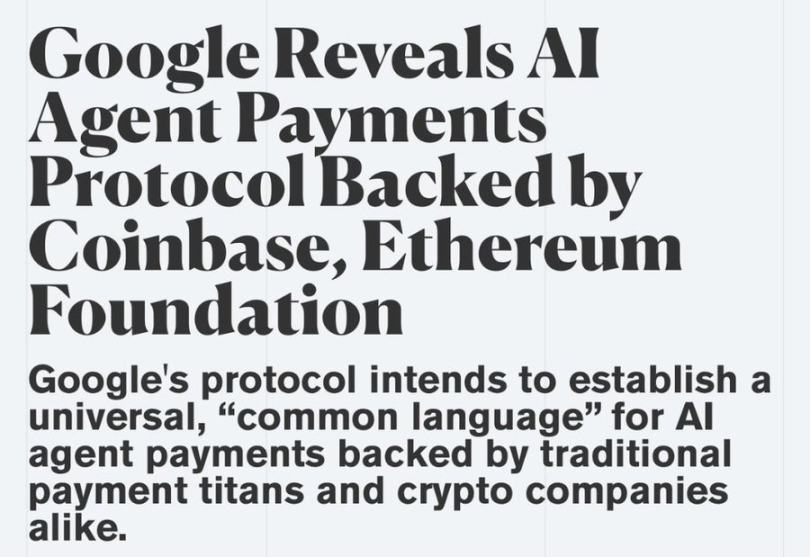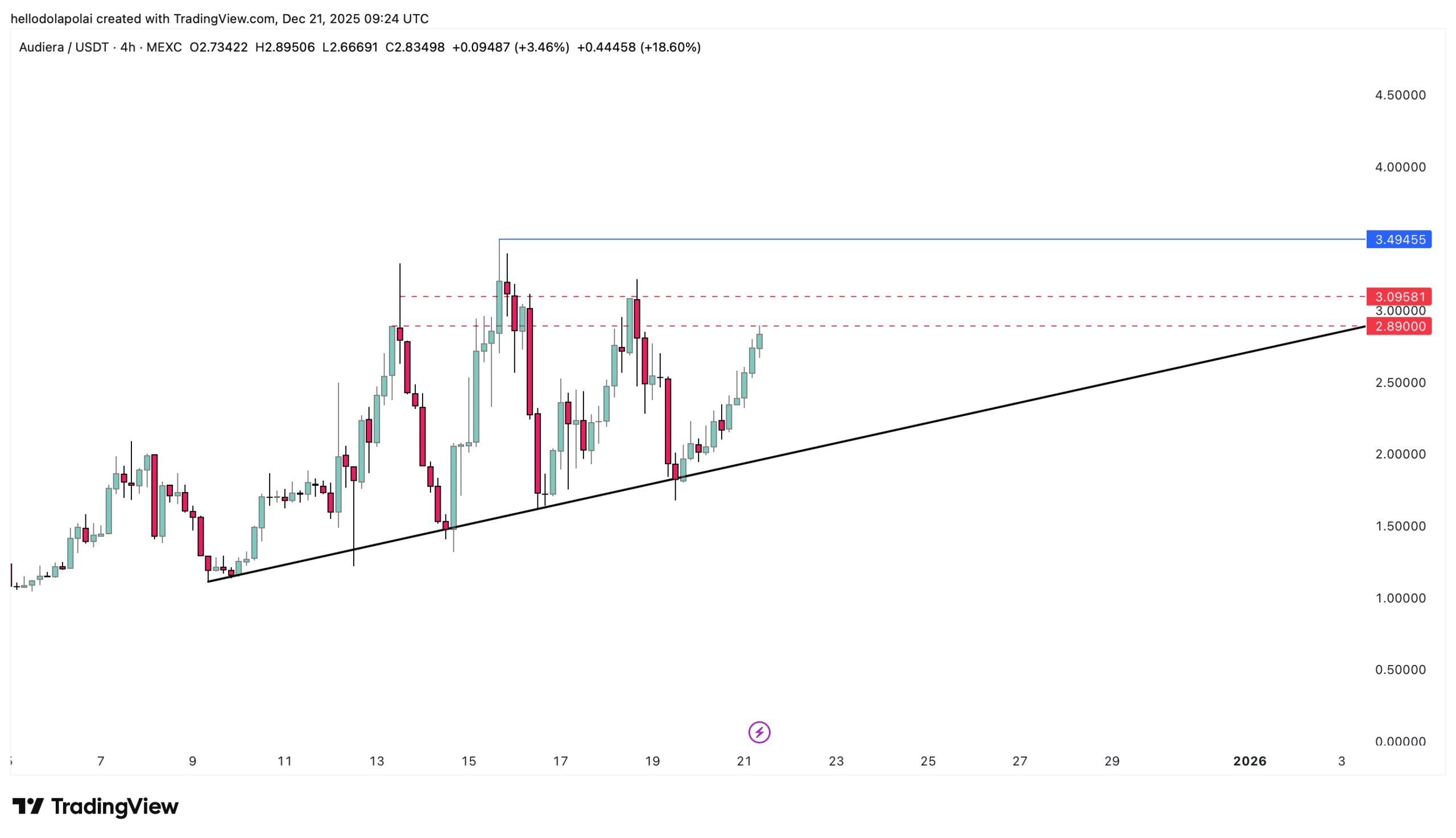The inevitability of x402's explosive popularity
The Agent Internet will operate based on verifiable truth, and currency is merely the opening act.
The Internet of Agents will operate on verifiable truth, and currency is only the opening act.
Written by: binji
Translated by: AididiaoJP, Foresight News
Civilization is able to scale because humans can engage in implicit trust, but AI agents cannot.
The only way for them to build a society of agents is through a ledger of truth, which is the blockchain.
Currency is always the first thing recorded on the ledger, because it is the simplest form of truth that needs to be maintained:
- Who owns what
- Who paid whom.
This is why the first AI standards, such as Google’s AP2 and the X402 primitive supported by Coinbase and the Ethereum Foundation, all start with payments.

The first step is that agents need a way to exchange value, but this is only the beginning.
Humans rely on memory, reputation, and unspoken social cues to decide whom to trust, but agents do not have these, so every action must be verified and every statement must be proven.
Standards like ERC-8004 are beginning to outline how this works: a shared registry where agents can anchor identity, reputation, and verification.
This takes up minimal space on-chain, but it is enough for machines to discover each other and know whom they are dealing with.
Once this is in place, the roadmap becomes clear:
- First is payments, because currency is the clearest record.
- Second is identity and reputation, so agents can confidently transact with each other.
- Then comes coordination and contracts, enabling market operations and collective action among agents.
Why blockchain, and not just any distributed system?
Because blockchain is designed for adversarial environments, where:
- Every record is verifiable
- Every state transition is transparent
- Consensus can be reached without participants needing to trust each other in advance.
Databases can replicate data, permissioned systems can share logs, but none of these can prevent agents from lying, censoring, or rewriting history. Only blockchain provides credible neutrality, with no single participant holding the keys to the ledger and no one able to edit it unilaterally.
For us humans, this distinction may feel subtle, because we carry implicit trust into most interactions. But for agents, it is a matter of survival, because when one machine interacts with another, it cannot read body language, intuit reputation, or rely on a court system. All of its confidence comes from verifiability, and blockchain is built for this: a public, append-only memory bank where identity can be anchored and trust can be established.
The Internet of Agents will operate on verifiable truth, and currency is only the opening act. The ultimate goal is to build a civilization of agents that communicate, trust, and share resources through the blockchain.
Now we have the hardware, we have the software, and now it’s time to develop the trust component.
Disclaimer: The content of this article solely reflects the author's opinion and does not represent the platform in any capacity. This article is not intended to serve as a reference for making investment decisions.
You may also like
DTCC and JPMorgan just set the on-chain schedule, but the pilot relies on a controversial “undo” button
BEAT heats up, rallies 30%! A key level stands before Audiera’s ATH

Trending news
MoreDTCC and JPMorgan just set the on-chain schedule, but the pilot relies on a controversial “undo” button
Bitget Daily Digest (Dec.22)|The U.S. House of Representatives Is Considering a Tax Safe Harbor for Stablecoins and Crypto Staking; Large Token Unlocks for H, XPL, SOON, and Others This Week; BTC RSI Near a 3-Year Low
